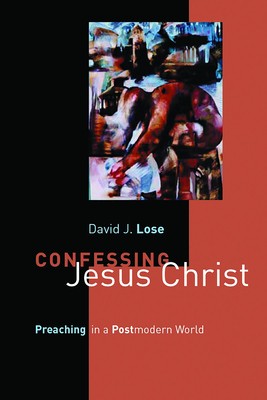
- We will send in 10–14 business days.
- Author: David J Lose
- Publisher: William B. Eerdmans Publishing Company
- ISBN-10: 0802849830
- ISBN-13: 9780802849830
- Format: 15.3 x 23.3 x 2 cm, softcover
- Language: English
- SAVE -10% with code: EXTRA
Reviews
Description
With its relentless insistence that there is no reality beyond that which we construct, postmodern thought questions the presuppositions of many disciplines, including homiletics. Offering a lively description of the postmodern worldview and its implications for Christian faith, Confessing Jesus Christ by David Lose teaches preachers how to rise to the challenges posed by our postmodern world.
Few if any books on preaching offer such a comprehensive investigation of postmodern thought or yield such a wealth of insights for relevant Christian proclamation. Significantly, Lose sees postmodernism not primarily as an obstacle to the church but as an opportunity for it to stand once again on faith alone rather than on attempts to prove the faith. According to Lose, preaching that seeks to be both faithful to the Christian tradition and responsive to our pluralistic, postmodern context is best understood as the public practice of confessing faith in Jesus Christ. He explores the practical implications of a confessional homiletic for preaching and also provides concrete methods for preparing sermons that meaningfully bridge biblical texts and contemporary congregations.EXTRA 10 % discount with code: EXTRA
The promotion ends in 19d.10:55:06
The discount code is valid when purchasing from 10 €. Discounts do not stack.
- Author: David J Lose
- Publisher: William B. Eerdmans Publishing Company
- ISBN-10: 0802849830
- ISBN-13: 9780802849830
- Format: 15.3 x 23.3 x 2 cm, softcover
- Language: English English
With its relentless insistence that there is no reality beyond that which we construct, postmodern thought questions the presuppositions of many disciplines, including homiletics. Offering a lively description of the postmodern worldview and its implications for Christian faith, Confessing Jesus Christ by David Lose teaches preachers how to rise to the challenges posed by our postmodern world.
Few if any books on preaching offer such a comprehensive investigation of postmodern thought or yield such a wealth of insights for relevant Christian proclamation. Significantly, Lose sees postmodernism not primarily as an obstacle to the church but as an opportunity for it to stand once again on faith alone rather than on attempts to prove the faith. According to Lose, preaching that seeks to be both faithful to the Christian tradition and responsive to our pluralistic, postmodern context is best understood as the public practice of confessing faith in Jesus Christ. He explores the practical implications of a confessional homiletic for preaching and also provides concrete methods for preparing sermons that meaningfully bridge biblical texts and contemporary congregations.

Reviews